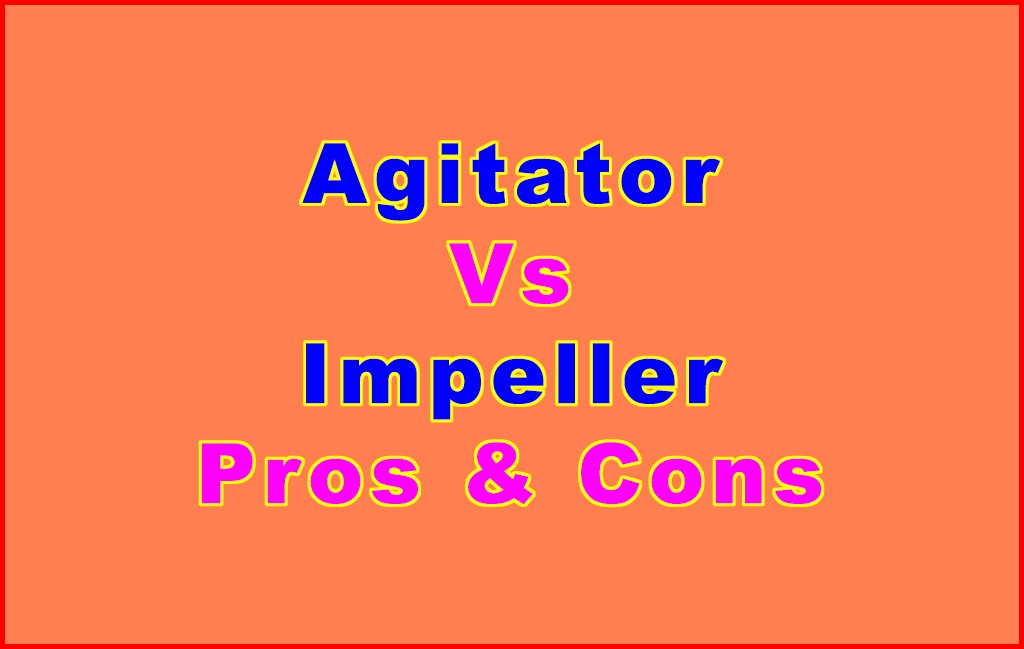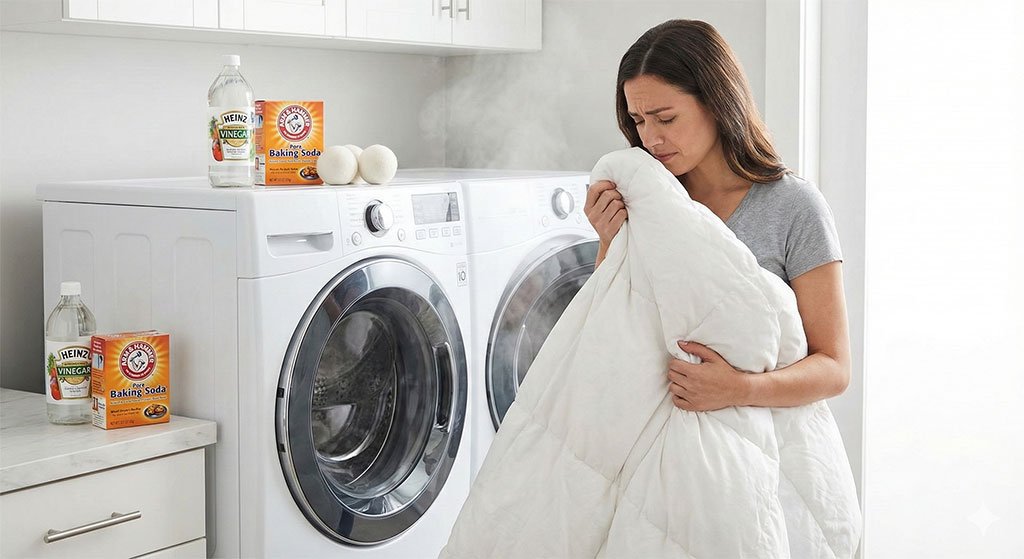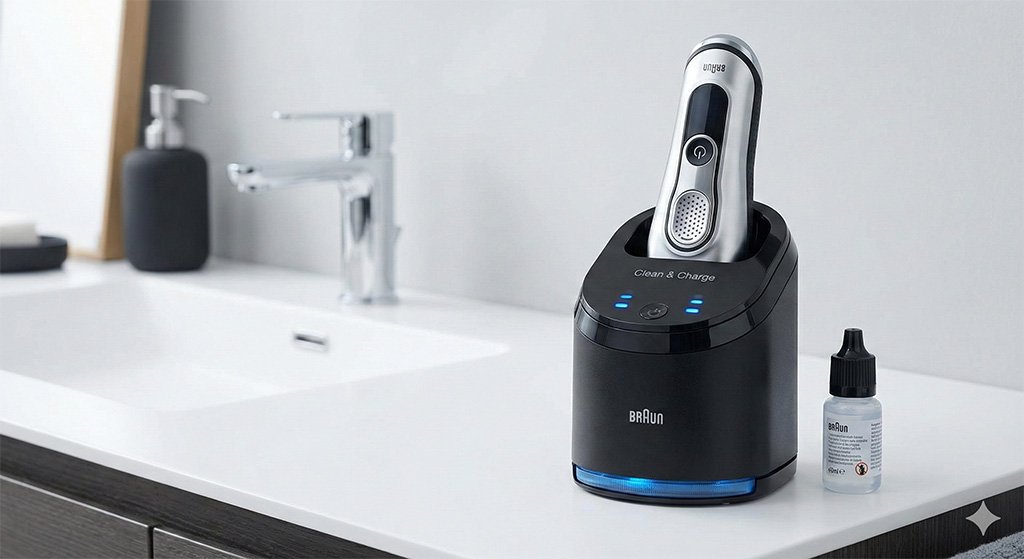So, you’re curious about agitator vs impeller pros and cons, huh? Well, you’re in the right place! Agitators and impellers are essential components used in top load washing machine for mixing and blending. They play a crucial role in creating motion and turbulence in liquids, facilitating processes such as cleaning, blending, and processing of materials.
Agitators are devices that use blades or paddles to create turbulence in liquids. They are typically used in washing machines for tackling tough stains.
On the other hand, impellers are rotating devices with blades or vanes that create fluid movement with less turbulence compared to agitators. They are commonly used in top loaders where delicate materials need to be mixed without causing damage.
However, like anything else, agitators and impellers also have their own advantages and disadvantages. Agitators, with their flexibility in design and relatively lower cost, are great for heavy-duty applications. But they may not be suitable for delicate materials and can consume more energy.
On the other hand, impellers are known for their gentle handling, higher energy efficiency, and reduced risk of splashing or foaming. However, they may have limitations in terms of flexibility and higher initial and maintenance costs.

What is an agitator in washing machine?
An agitator in a washing machine is a component that helps create the necessary motion and turbulence in the water during the wash cycle. It’s like a paddle or blade that rotates or moves back and forth to agitate the clothes, allowing the detergent to penetrate the fibers and remove dirt and stains more effectively.
You can think of it like this: when you pour water and detergent into your washing machine, the agitator goes to work by churning the water and creating a swirling action. This swirling action helps to dislodge dirt from the clothes and distribute the detergent evenly, ensuring a thorough clean.
Agitators are commonly found in top-loading washing machines and have been used for decades in household appliances. They are known for their robustness and ability to handle heavily soiled clothes. However, they can be more aggressive on fabrics, causing more wear and tear on clothes over time.
How to load an agitator washer?
Loading an agitator washer is a simple process that can be done by following a few steps. First, open the lid or door of the washing machine, depending on the type of agitator washer you have. Next, sort your laundry by color, fabric type, and level of soiling to optimize the washing process.
Then, place your sorted laundry, one item at a time, into the washing machine drum, being careful not to overstuff it, as this can hinder the agitator’s movement and reduce washing effectiveness.
To ensure even washing, distribute the clothes around the agitator, avoiding placing all the clothes on one side of it, as this can cause an imbalance during the wash cycle. Add the appropriate amount of detergent as per the manufacturer’s instructions to achieve optimal washing performance.
Close the lid or door securely to start the washing cycle, and select the desired wash cycle and any additional settings, such as water temperature or spin speed, based on your preference and garment care label instructions.
What is an impeller in washing machine?
An impeller is a type of device used in washing machines to agitate and clean clothes. It is a low-profile, cone-shaped or disc-shaped mechanism that is located at the bottom of the washer drum.
Unlike an agitator, which has a central spindle with fins or paddles that move in a twisting motion, an impeller uses a rotating disc or cone to create a turbulent water flow that moves clothes around and loosens dirt and stains.
Impellers work by pushing water and detergent through the clothes, creating a high-speed whirlpool effect that helps to dislodge dirt and debris from the fabric. As the impeller rotates, it creates turbulence in the water, which generates a dynamic washing action that gently but effectively cleans the clothes.
One of the benefits of using an impeller in a washing machine is that it can handle a larger load of laundry compared to an agitator. The absence of a central spindle allows for more space in the drum, making it easier to wash larger items like blankets, comforters, and bulky clothes.
Impellers also tend to be gentler on delicate fabrics, as they do not have fins or paddles that can potentially snag or damage clothes.
How to load an impeller washing machine?
Loading an impeller washer is a straightforward process that can be done by following a few simple steps. First, open the lid or door of the washing machine, depending on the type of impeller washer you have. Next, sort your laundry by color, fabric type, and level of soiling to optimize the washing process.
Then, place your sorted laundry, one item at a time, into the washing machine drum, being careful not to overstuff it. Make sure to distribute the clothes evenly around the impeller, avoiding placing all the clothes on one side of it, as this can cause an imbalance during the wash cycle.
Add the appropriate amount of detergent as per the manufacturer’s instructions. It’s important to use the right amount of detergent to avoid oversudsing or under-cleaning of the clothes.
Close the lid or door securely to start the washing cycle, and select the desired wash cycle and any additional settings, such as water temperature or spin speed, based on your preference and garment care label instructions.
Agitator vs Impeller Washer Pros and Cons
Agitator Washer Pros and Cons
Pros:
- Agitators are generally more effective in removing tough stains and heavily soiled clothes.
- Agitators typically have shorter wash cycles, resulting in quicker laundry turnaround times.
- Agitators are often more affordable compared to other washing machine types.
- Agitators are relatively simple and easy to use, with straightforward controls and settings.
- Agitators may be preferred for washing heavily soiled items, such as work clothes or sports gear.
Cons:
- Agitators can be harsh on delicate fabrics, potentially causing damage or wear over time.
- Agitators can use more water and energy compared to other types of washing machines.
- Agitators can create more tangling and twisting of clothes, leading to potential tangling or damage.
- Agitators may have limited capacity for larger items like blankets or bulky clothes.
- Agitators can be noisy during operation, especially during the agitating cycle.
Impeller washer Pros and Cons
Pros:
- Impellers provide gentle washing action, which is ideal for delicate fabrics and helps prevent wear and tear on clothes.
- Impeller washing machines are known for their larger drum capacity, allowing for larger loads of laundry, such as comforters or blankets.
- Impellers use less water compared to agitator washing machines, resulting in potential water savings and lower water bills.
- Impeller washing machines are generally quieter during operation, producing less noise and vibration compared to agitators.
- Impellers offer a sleek and modern design, which can complement the aesthetics of your laundry room or space.
- Impellers usually come with a variety of wash cycle options and settings, allowing for customization based on different fabric types and soiling levels.
Cons:
- Impellers may not be as effective at removing tough stains and heavy soiling compared to agitators.
- Impellers can be prone to tangling clothes, especially if they are loosely woven or have long straps or ties.
- Impeller washing machines tend to have longer wash cycles compared to agitators, which may require more time for laundry.
- Impeller washing machines are typically more expensive compared to agitator washing machines.
- Impellers may not be suitable for washing heavily soiled items, as their gentler washing action may not be as effective.
- Impellers may require more frequent cleaning and maintenance to prevent buildup and ensure optimal performance.
Comparison Table: Agitator Vs. Impeller Washer
Here’s a comparison table outlining the differences between agitator and impeller washing machines:
Aspect | Agitator Washer | Impeller Washer |
Cleaning Action | Robust agitating action, may cause more wear and tear on clothes | Gentle swirling action, less wear and tear on clothes |
Load Capacity | Larger load capacity, suitable for large families or heavy-duty laundry | Smaller load capacity, ideal for smaller households |
Cleaning Performance | Strong cleaning performance, especially for heavily soiled clothes | Efficient cleaning performance for regular laundry loads |
Energy Efficiency | Lower energy efficiency, higher electricity consumption | Higher energy efficiency, lower electricity consumption |
Water Usage | Higher water usage, due to agitator action | Lower water usage, due to impeller action |
Noise Level | Can be louder due to agitator action | Generally quieter due to impeller action |
Maintenance | May require more maintenance due to agitator mechanism | Typically low maintenance with fewer moving parts |
Suitable for Delicate Clothes | May not be ideal for delicate clothes, may cause more wear and tear | Suitable for delicate clothes, gentle on fabrics |
Design | Traditional design with agitator in the center | Modern and sleek design with impeller at the bottom |
Lifespan | Typically has a longer lifespan | Typically has a shorter lifespan |
Replacement Parts | Agitator may require more frequent replacement | Impeller may require less frequent replacement |
Agitator vs Impeller Washer Longevity
Here’s a comparison table for the longevity two types of washers:
Aspect | Agitator Washer | Impeller Washer |
Durability | Generally durable | Generally durable |
Moving Parts | More moving parts | Fewer moving parts |
Wear and Tear | Agitator can cause more wear and tear on clothes | Gentle on clothes, less wear and tear |
Maintenance | May require more maintenance due to agitator mechanism | Typically low maintenance |
Lifespan | Typically has a longer lifespan | Typically has a shorter lifespan |
Replacement Parts | Agitator may require more frequent replacement | Impeller may require less frequent replacement |
Cost of Repairs/Parts | May be higher due to agitator mechanism | May be lower with fewer moving parts |
FAQ
Which is better agitator or impeller washer?
The choice between an agitator and an impeller washer largely depends on individual preferences and laundry needs. Both types of washing machines have their pros and cons, and what might be considered “better” can vary based on factors such as the type of clothes being washed, the level of soiling, available space, budget, and personal preferences.
Agitator washing machines are known for their powerful cleaning action, making them effective at removing tough stains and heavy soiling. They also tend to have shorter wash cycles, which can be convenient for those who need to do laundry quickly. Agitator washers are typically more affordable compared to other types of washing machines, making them budget-friendly options.
However, they also use more water, potentially resulting in higher water bills, and can be rough on delicate fabrics, potentially causing damage or wear over time. They may also produce more noise and vibration during operation.
On the other hand, impeller washing machines use a gentler washing action, which is ideal for delicate fabrics and helps prevent wear and tear on clothes. They also use less water compared to agitator washers, resulting in potential water savings and lower water bills.
Impeller washers also typically come with a variety of wash cycle options and settings, allowing for customization based on different fabric types and soiling levels. They also tend to have larger drum capacities, allowing for larger loads of laundry, such as comforters or blankets.
However, impeller washers may not be as effective at removing tough stains and heavy soiling compared to agitators, and they may be relatively more expensive.
Ultimately, the “better” choice between agitator and impeller washer depends on individual needs and preferences. If powerful cleaning and shorter wash cycles are a priority, an agitator washer may be preferred. On the other hand, if gentler washing, water savings, and customization options are important, an impeller washer may be the preferred choice.
It’s essential to carefully consider your laundry needs, budget, and space constraints when making a decision, and to refer to the manufacturer’s instructions for proper usage and maintenance to ensure optimal performance and durability, regardless of the type of washing machine chosen.
Are agitator washers suitable for washing delicate fabrics like silk or lace?
Agitator washers may not be the best choice for delicate fabrics as their powerful cleaning action can potentially cause damage or wear over time. It’s recommended to follow the garment’s care label and use appropriate wash cycles or consider hand-washing delicate fabrics.
Can I use an impeller washer for heavily soiled clothes?
Impeller washers may not be as effective at removing tough stains and heavy soiling compared to agitator washers due to their gentler washing action. It’s recommended to pre-treat heavily soiled clothes or consider using an agitator washer for better stain removal.
Do impeller washers have larger drum capacities compared to agitator washers?
Yes, impeller washers typically have larger drum capacities, allowing for larger loads of laundry, such as comforters or blankets. This can be a convenient feature for those with larger families or frequent heavy-duty laundry needs.
Are impeller washers more expensive than agitator washers?
Impeller washers may be relatively more expensive compared to agitator washers due to their advanced technology and features. However, prices may vary depending on the brand, model, and additional features offered.
Which type of washer is more water-efficient, agitator or impeller?
Impeller washers are generally more water-efficient compared to agitator washers as they use less water during each wash cycle. This can result in potential water savings and lower water bills over time.
Do agitator washers have shorter wash cycles compared to impeller washers?
Yes, agitator washers typically have shorter wash cycles compared to impeller washers. This can be convenient for those who need to do laundry quickly or have limited time for washing.
Can I wash a large comforter in an agitator washer?
Yes, agitator washers are often suitable for washing larger items like comforters or blankets due to their powerful cleaning action and larger drum capacities. However, it’s essential to refer to the manufacturer’s instructions for proper usage and load capacity.
Are impeller washers quieter compared to agitator washers?
Yes, impeller washers tend to produce less noise and vibration during operation compared to agitator washers. This can be beneficial for those who are sensitive to noise or have laundry areas near living spaces.
Can I customize wash cycles in an impeller washer?
Yes, impeller washers typically come with a variety of wash cycle options and settings, allowing for customization based on different fabric types and soiling levels. This can provide more flexibility in choosing the appropriate wash cycle for different types of clothes.
Do agitator washers require more maintenance compared to impeller washers?
Agitator washers may require more maintenance compared to impeller washers due to their agitator mechanism. It’s important to clean the agitator and the surrounding area regularly to prevent build-up of dirt or detergent residue.
Are there any special care instructions for impeller washers?
It’s recommended to follow the manufacturer’s instructions for care and maintenance of impeller washers. This may include cleaning the impeller, ensuring proper loading of clothes, and using appropriate detergent and water levels for optimal performance.
Can I use regular detergent in both agitator and impeller washers?
Yes, regular detergent can be used in both agitator and impeller washers. However, it’s important to follow the manufacturer’s recommendations for detergent type and amount based on the specific washer model and the type of clothes being washed. Some impeller washers may require high-efficiency (HE) detergent, while agitator washers may have specific requirements for detergent usage.
Are agitator or impeller washers more energy-efficient?
Both agitator and impeller washers can be energy-efficient, but it depends on the specific model and features. Look for washers with Energy Star certification or other energy-saving features, such as variable speed motors or water-saving options, to ensure optimal energy efficiency.
Can I use bleach or fabric softener in both agitator and impeller washers?
Yes, bleach and fabric softener can generally be used in both agitator and impeller washers, but it’s important to follow the manufacturer’s instructions for proper usage and amount. Some washers may have specific dispensers or settings for bleach or fabric softener.
Can I wash different types of fabrics together in both agitator and impeller washers?
It’s generally recommended to sort laundry based on fabric type, color, and care label instructions, regardless of whether you are using an agitator or impeller washer. Separating different types of fabrics can help prevent color bleeding, damage, or shrinkage during the wash process.
Do impeller washers tangle clothes?
No, impeller washers are designed to minimize tangling of clothes. The unique design of the impeller, with its low-profile vanes, helps to gently move clothes in a swirling motion, reducing the chances of clothes getting tangled during the wash cycle.
Final Words
After exploring the world of agitator vs impeller pros and cons, it’s clear that both options have their advantages and limitations. Agitator washers are known for their robust cleaning performance, larger capacities, and versatility in handling heavy-duty laundry needs.
On the other hand, impeller washers offer gentle yet efficient cleaning, sleek design, and a smaller footprint, making them ideal for smaller spaces or households with lighter laundry loads.
Ultimately, the choice between agitator and impeller washers depends on your personal preferences, laundry needs, and available space. Consider factors such as washing performance, load capacity, energy efficiency, features, and budget to make an informed decision.
Don’t forget to also follow the manufacturer’s instructions for proper usage and maintenance to ensure the longevity and performance of your chosen washer.




Leave a Reply